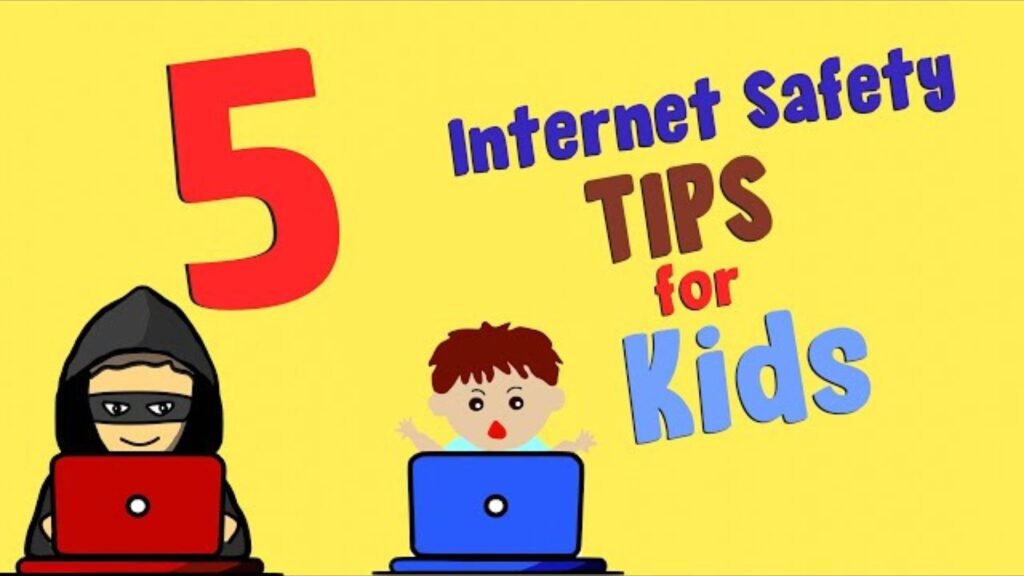The internet offers a wealth of resources and entertainment for kids, but it also comes with risks. Internet safety tips for kids online are crucial for protecting them from online dangers and ensuring a safe browsing experience. Here’s a guide to help kids stay safe and secure while using the internet.

1. Keep Personal Information Private
Avoid Sharing Personal Details
- What to Do: Teach kids not to share personal information like their full name, address, phone number, or school on websites and social media.
- Why It Helps: Protects against identity theft and prevents strangers from gathering information that could be used for malicious purposes.
Use Nicknames
- What to Do: Encourage the use of nicknames or online aliases instead of real names in online profiles and forums.
- Why It Helps: Reduces the risk of being identified and targeted by online predators.
2. Be Cautious with Online Friends
Only Interact with Known Contacts
- What to Do: Remind kids to interact only with people they know in real life and to be cautious about accepting friend requests or messages from strangers.
- Why It Helps: Minimizes the risk of engaging with individuals who might have harmful intentions.
Report Suspicious Behavior
- What to Do: Teach kids to report any suspicious or uncomfortable interactions to a trusted adult.
- Why It Helps: Allows for prompt action to protect the child and address potential threats.
3. Use Strong, Secure Passwords
Create Complex Passwords
- What to Do: Encourage the use of strong passwords that include a mix of letters, numbers, and symbols.
- Why It Helps: Enhances security by making it harder for hackers to access accounts.
Avoid Sharing Passwords
- What to Do: Remind kids never to share their passwords with anyone, even friends.
- Why It Helps: Prevents unauthorized access to their accounts and personal information.
4. Be Mindful of Online Content
Avoid Clicking on Suspicious Links
- What to Do: Teach kids not to click on links or download attachments from unknown or untrusted sources.
- Why It Helps: Reduces the risk of malware infections and phishing scams.
Understand Online Etiquette
- What to Do: Explain the importance of respectful and responsible behavior online, including not participating in cyberbullying.
- Why It Helps: Promotes a positive online environment and helps kids interact appropriately with others.
5. Use Parental Controls and Monitoring
Set Up Parental Controls
- What to Do: Utilize parental control software and settings on devices and browsers to restrict access to inappropriate content.
- Why It Helps: Provides an extra layer of protection by filtering out unsuitable material.
Monitor Online Activity
- What to Do: Regularly review the websites and apps your child uses and discuss their online activities.
- Why It Helps: Keeps you informed about their internet use and helps identify any potential issues early.
6. Educate About Online Scams and Fraud
Recognize Common Scams
- What to Do: Teach kids to recognize common online scams, such as fake giveaways or phishing emails.
- Why It Helps: Helps them avoid falling victim to fraud and online schemes.
Verify Sources
- What to Do: Encourage kids to verify the credibility of information and sources before believing or sharing it.
- Why It Helps: Prevents the spread of misinformation and helps them make informed decisions.
7. Encourage Open Communication
Talk About Online Experiences
- What to Do: Maintain an open dialogue with your child about their online experiences and any concerns they might have.
- Why It Helps: Ensures that kids feel comfortable discussing issues and seeking help if needed.
Provide Support and Guidance
- What to Do: Offer support and guidance if your child encounters problems or has questions about their online interactions.
- Why It Helps: Reinforces their confidence and ensures they know how to handle various online situations.
Conclusion
Internet safety tips for kids online are essential for ensuring a safe and secure online experience. By keeping personal information private, being cautious with online friends, using strong passwords, and monitoring online activity, kids can navigate the internet more safely. Educating children about online scams and maintaining open communication helps them stay informed and protected while enjoying the benefits of the digital world.











